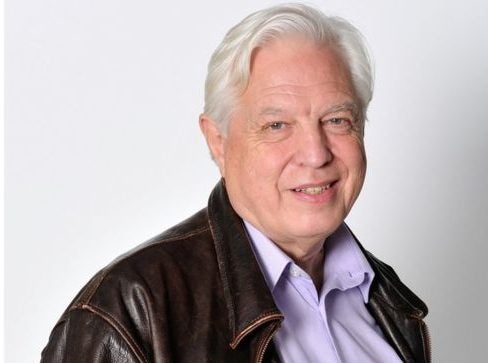
Broadcaster John Simpson has accused the Government of “limbering up” for a “major attack” on the BBC.
The BBC’s world affairs editor, 75, told Radio Times magazine that the broadcaster was an easy target.
His comments come after Prime Minister Boris Johnson said he is “looking at” abolishing the licence fee during last month’s election campaign.
Treasury minister Rishi Sunak later confirmed the Prime Minister had ordered a review of whether failure to pay the annual £154.50 fee should continue to be a criminal offence.
Simpson (pictured) admitted that the “threat of criminal proceedings” on non-payment of the licence fee made him “feel uncomfortable”.
But he said it was “payback time” because the Prime Minister and the Conservatives “feel bruised and damaged by the broadcasters”.
Incidents with broadcasters before the general election included Channel 4 replacing the Prime Minister with an ice sculpture during its climate debate, an ITV News correspondent asking Johnson to look at a photograph of a boy forced to sleep on a hospital floor, and Andrew Neil’s monologue after Johnson snubbed an interview with him.
“For possibly the ninth time in my 53 years with the BBC, a British government is limbering up to launch a major attack on us,” Simpson said.
“The BBC offers the biggest, easiest and most juicy target of all, because of the licence fee.
“No-one likes paying the licence fee, and the threat of criminal proceedings if they don’t makes even BBC lifers like me feel uncomfortable.”
But Simpson said that “the licence fee is the BBC”.
He added: “There isn’t enough advertising money around to fund ITV, Channel 4, Sky and the BBC as well, and there won’t be enough people willing to pay subscriptions.
“There’ll still be plenty to watch on television, but most of it will be American-made. And the BBC’s news services, which most people rely on in this country, and which play a big part in maintaining Britain’s image around the world, will dwindle away.”
He said of the corporation’s future: “Maybe we’ll get through this latest attack, maybe we won’t.”
His comments come after BBC boss Lord Hall penned a defence of the broadcaster for the FT, saying: “At home, the role of the BBC is hotly debated, yet we are the envy of the world.”
The current Royal Charter, the agreed constitutional basis for the BBC, began on 1 January 2017 and will run until the end of 2027. It exempts the licence-fee funding model from being changed until the charter ends.
Currently non-payment of the licence fee can result in a court appearance and a fine of up to £1,000.
The full article is in this week’s Radio Times magazine.
Picture: BBC
Email pged@pressgazette.co.uk to point out mistakes, provide story tips or send in a letter for publication on our "Letters Page" blog
